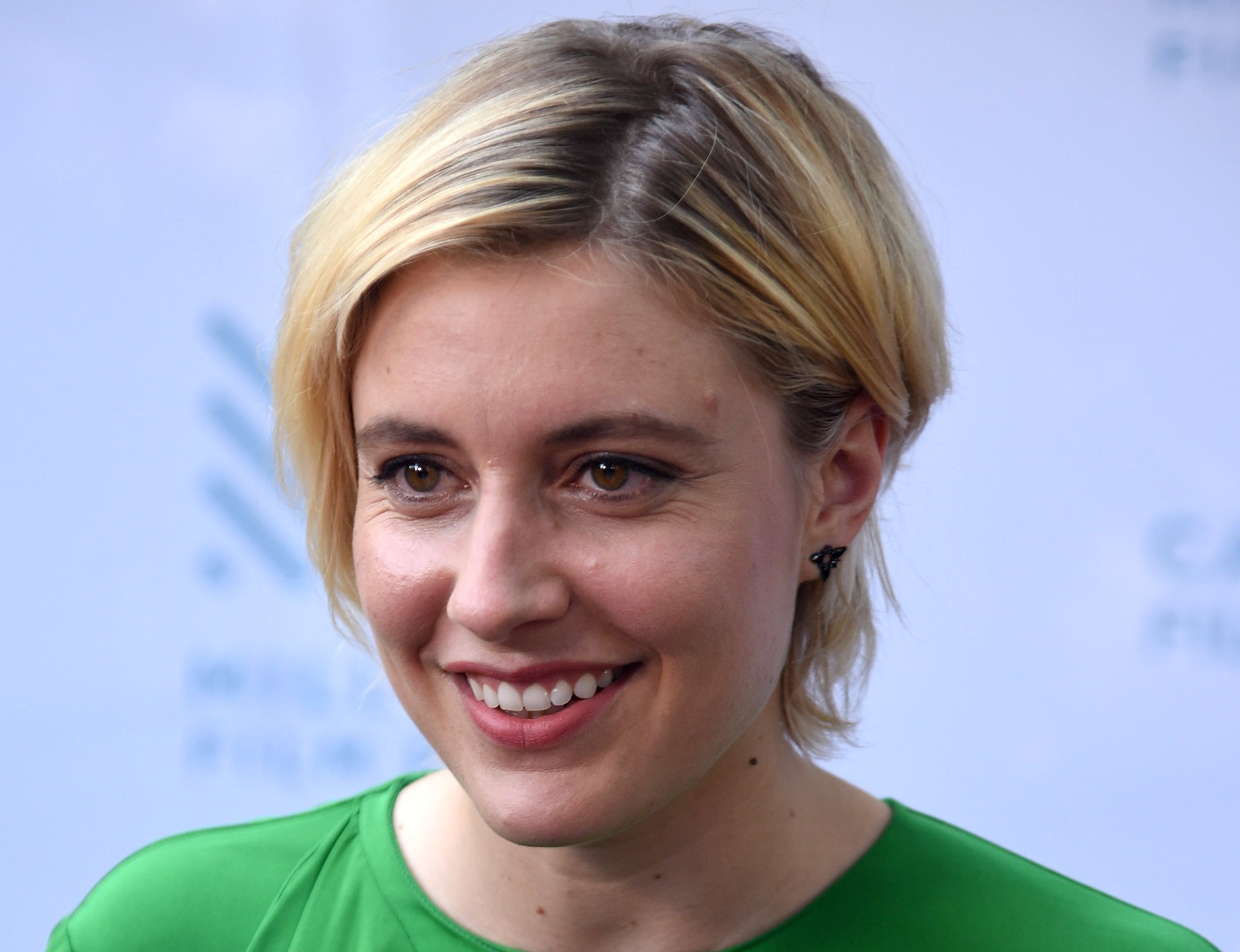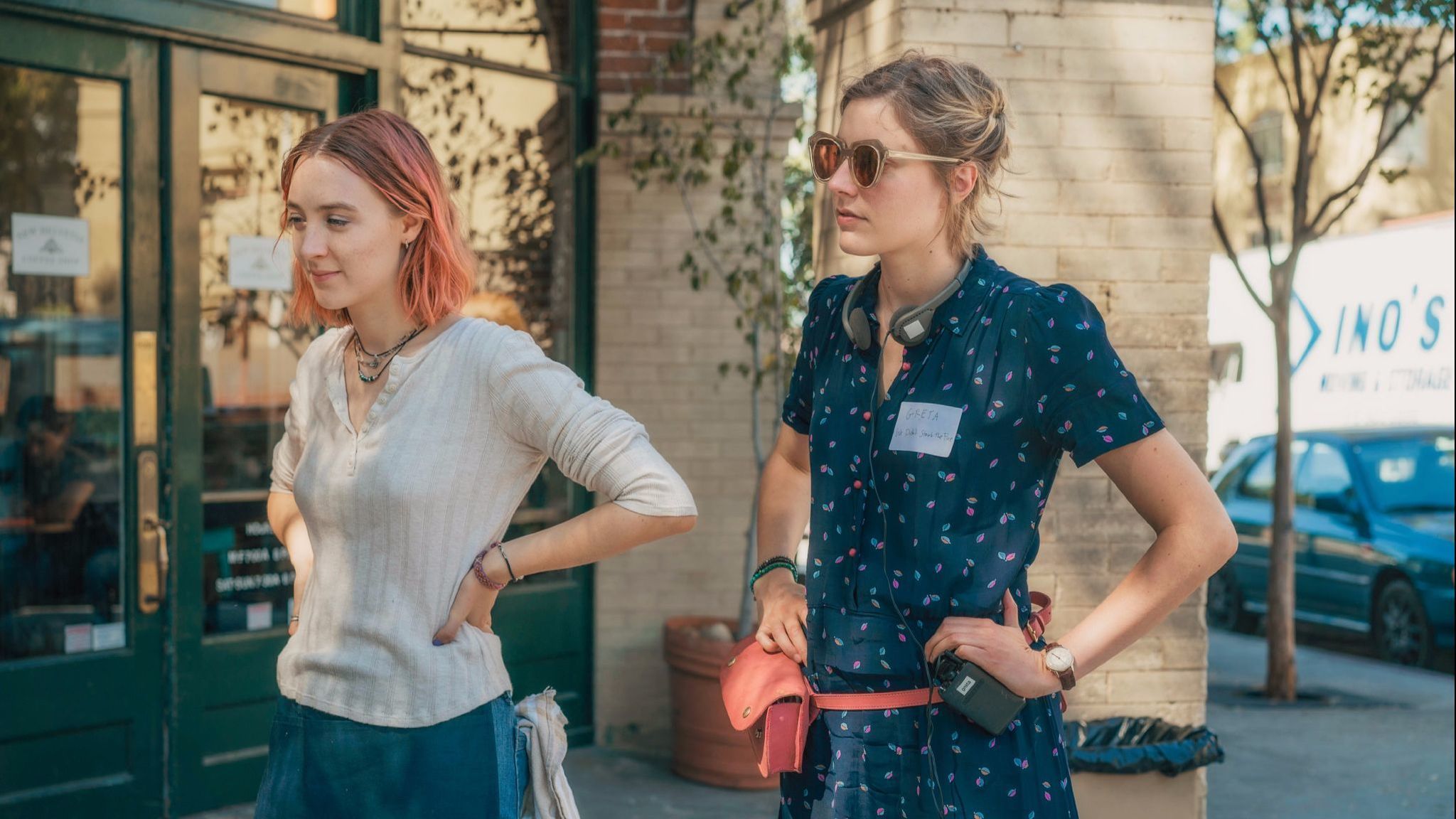
- Interviews
Greta Gerwig Flies High with ‘Lady Bird’
The title of Greta Gerwig’s debut film as a director is Lady Bird. It is also the name that her lead character, the young Christine McPherson has given herself in order to find her own identity in the midst of teenage confusion. Naming herself is an act of defiance against her mother. It is also an exploration of whom she would like to be and whom she is on the journey to become, a symbol of her leaving home and becoming herself. In this case “home” the city of Sacramento, where Greta Gerwig herself grew up.
Lady Bird is a coming-of-age story, but it is as much a story about a mother and daughter relationship, played by Laurie Metcalf and Saoirse Ronan respectively. It is both tender and full of love, and tortured and full of conflict. With her first feature film, Greta Gerwig has shown that she can make a highly personal film that extends to the universal.
Lady Bird is not only a coming-of-age story. It seems to be a love letter to Sacramento the place that you grew up. Is this right?
Well definitely. No question, it’s a love letter to Sacramento and it’s a love letter to mothers and parents and it comes out of an extraordinary amount of feeling.
You called the film Lady Bird. And the young lady in the film played by Saoirse Ronan identifies herself with this character that she has created for herself. Did you have a name that you wanted to be called when you were young in Sacramento?
No. I never did that. That was really a complete invention. I have always been myself. But what I liked about the naming was, I was working on the script and I was writing, and I had different pieces of it but then I kept coming up against a block that I couldn’t figure out how to get past, and then I put everything aside and I wrote at the top of the page: “Why won’t you call me Lady Bird? You promised that you would.” And I had no idea where it came from and I went: “My goodness, I would like to know who this character is and who makes people call her by a name that is not her own, Lady Bird?” So I started writing this character and based on this one piece of information that had come from my unconscious, which was a person who calls themselves different names.
So it was completely unconscious?
I think in retrospect, two things were going on. One, renaming one’s self can be both a religious act and it can be a secular act. It can be a religious act when you go through your first confirmation and you pick a saint name, or to take vows to a religious order, you get a new name. Or it can be an act of a rock star or a movie star, like Marilyn Monroe. That is not her name, she is Norma Jean Baker. Or David Bowie or Madonna. And it was doing two things at once. And then the further explanation is I realize later that there is a mother goose nursery rhyme that goes “ladybird, ladybird, fly away home, your house is on fire and your children all gone.” I had completely forgotten about that, but I also think that is how art works and is that things are buried in your memory and if you are letting things speak to you that are unconscious, you will find the connections all over the place but that is how I experience writing and it just comes from some other realm and it’s not until I am actually making it that I make all of these connections. But I intellectualize it later. In the moment, I go on instinct.

Greta Gerwig and Saoirse Ronan on the Lady Bird set.
a24
You are friends with Lena Dunham. Do you also feel connected to her in terms of filmmaking and the themes that you explore?
She is a great friend and I am a huge fan of her work. I think we are both interested in stories about complex women of all ages and origins. When I look at our work and what connects us, it is that we keep returning to women as flawed people and not women as functions in a man’s story. And I love what she has done and I am so happy to be existing in a time when there are more and more voices of female writers and directors and producers who are stepping forward and claiming bigger stories for themselves.
You were nominated for a Golden Globe for your performance in Frances Ha. What does being nominated mean to you?
I grew up every year watching the Golden Globes and the Academy Awards and these people were my heroes and these actors and writers and directors and producers were the people who gave me my dreams and so to be thought of in the group of people in this way, whether or not it happens is extraordinary to me. And personally, when I was nominated for a Golden Globe, it was extraordinary and I still can’t believe it. I still can’t believe it and I am just so honored by it.
So many stories have been coming out about Harvey Weinstein these past weeks from women who were sexually harassed or abused by him. He is not the only man in the business behaving badly, to put it mildly. What do you as a woman in the business think about this culture?
I think it’s the reason that it is so important and to have women in positions of leadership and power, because it’s definitely important for the form as for storytelling, because you need to have a diversity of decision makers in order to have a diversity of films and stories that we are portraying. And then also because I think it short circuits some of these power structures that have been scary to quite a lot of people. And I have been very lucky in my career to have not had this be a problem in life, but I know it’s certainly been a problem in other women’s lives and it’s insidious and it’s scary and I am just very hopeful for change and for inclusion and a paradigm shift in power structures in Hollywood. So that is why when I think about it, we need more women producers, executives, writers, directors, and advocates. And it’s all the way down so that there are just more voices.

